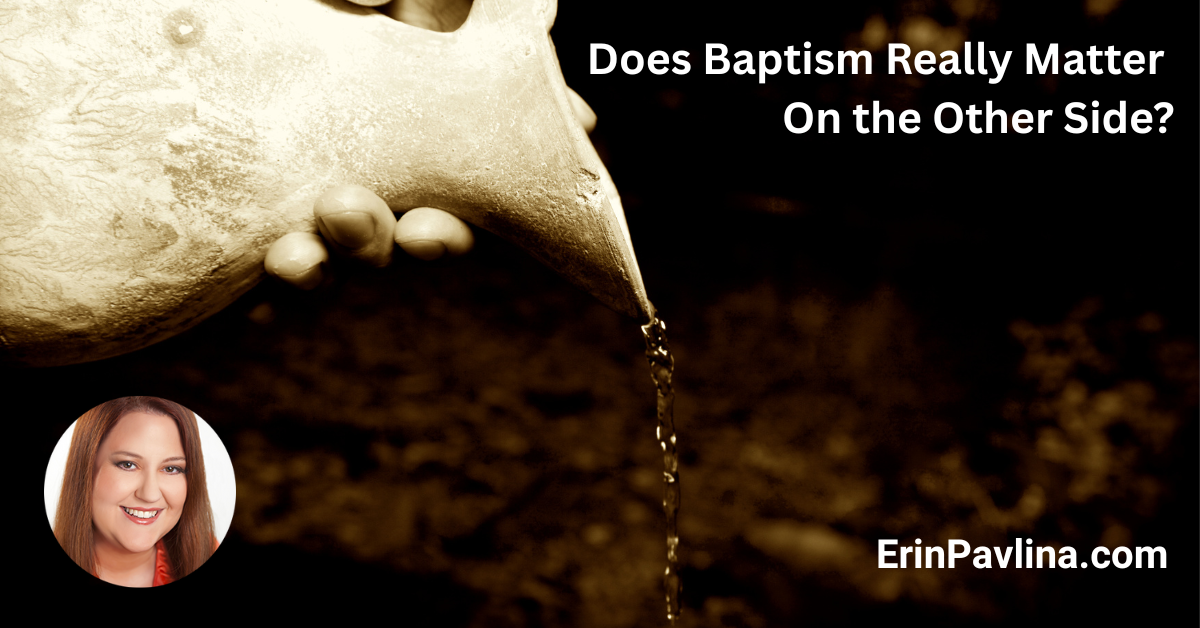Baptism has long been held as a sacred rite of passage in many faiths, especially within Christianity. It’s often seen as the symbolic washing away of sin, a public declaration of faith, and in some denominations, a requirement for salvation. But when we peel back the layers of doctrine and dogma, a deeper question emerges: Does baptism really matter on the other side—after we die?
Let’s explore what baptism is believed to accomplish, how it compares to similar rituals in other spiritual traditions, and ultimately, what role—if any—it plays in the afterlife.
What Baptism Is Believed to Accomplish
In Christian theology, baptism is more than just a ceremonial dunking in water. It’s considered a rebirth—a spiritual cleansing that signifies the washing away of original sin and the start of a new life in Christ. For Catholics and Orthodox Christians, baptism is a sacrament that marks entry into the Church and is often seen as necessary for salvation. In many Protestant denominations, baptism is a public declaration of faith and commitment to following Jesus.
To believers, baptism signifies:
- Cleansing of Sin: A symbolic purification of the soul.
- Spiritual Rebirth: Dying of the old self and being born again in spirit.
- Public Commitment: Declaring one’s alignment with God and the Church.
- Entry into the Community of Faith: Becoming part of the collective body of believers.
These interpretations are powerful within the context of life on Earth, serving as deeply meaningful moments for individuals and communities alike. But do they carry weight beyond this lifetime?
Other Cultures and Their Sacred Initiations
The idea of ritual purification or spiritual initiation is not unique to Christianity. Many cultures around the world use similar practices to mark spiritual transformation or commitment.
- Hinduism: The Upanayana ceremony initiates young boys into spiritual study and is often followed by ritual baths in sacred rivers like the Ganges, believed to cleanse karma.
- Judaism: The mikveh, a ritual bath, is used for purification before holy days or after certain life events.
- Islam: While not a direct parallel, ghusl, a full-body ritual purification, is required in various spiritual contexts.
- Indigenous traditions: Many tribes practice initiation ceremonies that include cleansing rituals, fasting, and vision quests to mark a person’s spiritual transition or readiness.
These rituals, like baptism, are powerful symbols. They help the initiate align with the sacred, the divine, or the community’s values. But they all serve a purpose rooted in the earthly experience, not necessarily in the rules of the afterlife.
What Matters on the Other Side?
From a spiritual or metaphysical standpoint, the afterlife does not operate on a checklist of rituals performed or missed. Accounts from near-death experiences, intuitive spiritual work, and even ancient teachings across multiple cultures emphasize that we are not judged by outward rituals, but by the contents of our hearts, the choices we’ve made, and the intentions behind them.
The soul, once it crosses over, is not met with a gatekeeper asking whether one was baptized, circumcised, purified in a river, or had a ceremonial coming of age. Instead, many who have had spiritual glimpses of the afterlife report experiencing a life review—an introspective look at the love they gave, the compassion they showed, and the growth they achieved.
Baptism, in this context, is not a cosmic pass or fail.
The Divine—however one defines it—is not small-minded, bureaucratic, or bound by the human-made rules of religious institutions. The soul is evaluated, if at all, based on its resonance with truth, love, integrity, and growth. Whether or not someone was baptized is irrelevant if their life was filled with cruelty or apathy. Similarly, someone who never stepped foot in a church may radiate spiritual light due to their kindness, humility, and compassion.
The Symbolic Value of Ritual
That said, baptism and other rituals do hold powerful symbolic and emotional value in this life. They serve as:
- Declarations of Intent: A baptism marks a conscious choice to walk a spiritual path.
- Symbols of Unity: Joining a community through shared beliefs and values can be profoundly healing.
- Moments of Transformation: Rituals offer a psychological and energetic shift, helping people anchor in a new version of themselves.
- Purification and Renewal: Whether physical or symbolic, the act of cleansing has deep spiritual resonance.
Even if they don’t carry weight on the other side, these rituals can impact us profoundly in this life. They can help us align our actions with our intentions, bring clarity to our spiritual journey, and offer a sense of belonging and support.
In essence, while rituals like baptism don’t determine our soul’s fate in the afterlife, they can play an essential role in shaping our earthly experience and spiritual development.
Final Thoughts
So, does baptism really matter on the other side?
No—not in the way many believe. It’s not a golden ticket to salvation, nor is its absence a spiritual disqualifier. On the other side, we are not judged by the rituals we performed, but by the love we lived, the lessons we learned, and the intentions we held.
Still, baptism holds beauty, meaning, and power in the physical world. It can be a sacred moment of transformation, a heartfelt commitment to the divine, and a symbol of spiritual clarity. In that sense, it matters deeply—not for the afterlife, but for the life we are living right now.
Whether or not you choose to be baptized, let your daily life be the true expression of your spiritual path. That, more than any ritual, is what truly echoes into eternity.


